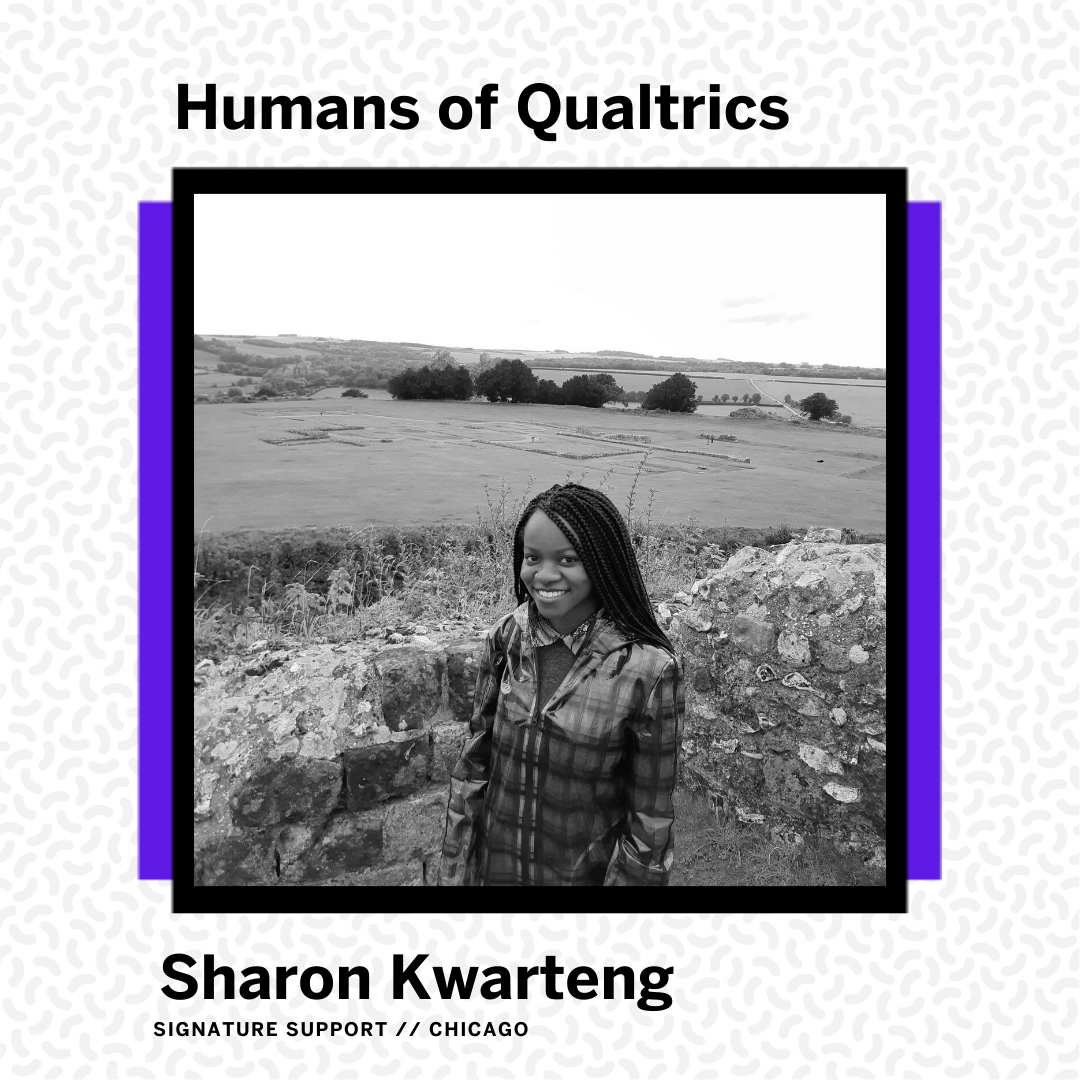
Belong
Sharon from MosaiQ on the important role companies play in exemplifying antiracist values
“Discrimination still exists in the workplace…organizations now have an opportunity to recognize this issue as a pinch point, so they can do something about it.” - Katherine DeCelles, Professor of Organizational Behavior and Academic Director of Ph.D. Program at the University of Toronto.
I am a Black woman. More specifically, I am a Black, first-generation, Ghanaian-American woman with an educational background in labor. I recently entered the workforce and throughout my job search, I worried about being able to navigate my place within Corporate America.
During my job search and interviewing processes, I was nervous about being overlooked and dismissed as a result of everyday things that most people don’t even think about. I was especially concerned that my last name would be scrutinized given that “companies are more than twice as likely to call minority applicants for interviews if they submit whitened resumes than candidates who reveal their race.” This seemingly innocuous aspect of myself made me anxious about not being able to find work. based on who I am.
I also wrestled with the assumption that I might be seen as “unprofessional” simply because of my hair. I regularly have a full head of braids. This is a protective style that keeps my hair healthy and minimizes damage. Thinking about my hair as a barrier to entry led me to consider chemically straightening my hair while looking for employment.
Along with my name and my hair, I considered that my race may pose a barrier when looking for work. People tend to gravitate towards people they share similarities with, so I thought about the potential for unconscious bias in my interviews. I tried to get a feel for whether the companies I was considering were inclusive, had diverse teams, and made continuous efforts to actively engage in and improve their DEI efforts before I applied.
It is important for companies to actively practice antiracism and embody DEI values as part of the business, not only because it is the right thing to do, but also because it brings better returns for the business. A Deloitte study found that businesses with inclusive cultures were twice as likely to meet or exceed their financial targets.
Ultimately, I decided to join Qualtrics because of the inclusive nature of the people who interviewed me and because of its active commitment to DEI and antiracism. I am a member of some of our employee resource groups (ERGs), including MosaiQ, which amplifies the voices of Black people and people of color, and Women’s Leadership Development (WLD). At Qualtrics, we look to close experience gaps. Although there is still room for improvement in this area, Qualtrics is continuing to make an effort to expand its pipeline to diverse communities through its partnerships with Historically Black Colleges and Universities (HBCUs).
Placing an emphasis on DEI initiatives and exemplifying antiracist values are imperative steps for any company that wants to succeed in an increasingly competitive market. These efforts can improve a company’s reputation and overall influence. When companies engage in the promotion and implementation of DEI and antiracism, society follows. Any company that takes advantage of building bridges between communities and providing opportunities to people from diverse backgrounds is a great company in my estimation.
 |
Sharon is an alumna of Cornell University and University College London. She started her career with Qualtrics in August of 2021 as a Specialist, Technical Account Manager and is an active member of MosaiQ, a Q Group (employee resource group) with the charter of recruiting, retaining, and promoting talent of color, increasing allyhood and awareness, and influencing the behavior of Qualtrics. |
|---|